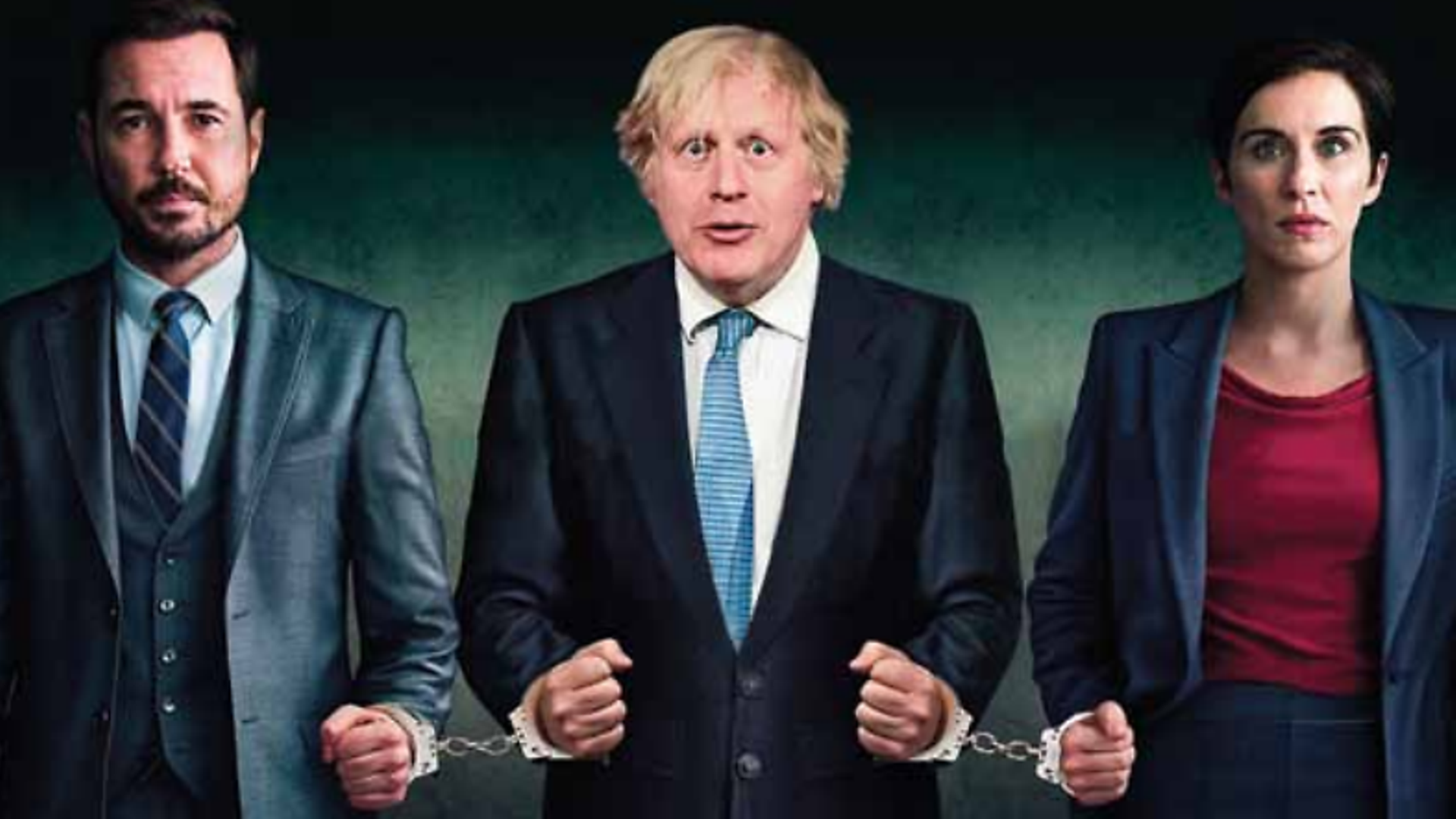When the other day I heard, Boris Johnson, say: “I genuinely believe that the UK is not remotely a corrupt country”, my mind immediately went back to 1973.
Back then, US president Richard Nixon said during a live interview: “Well, I am not a crook.” I wonder if we shall now see more similarities, in the next few months, from those momentous events, still fresh in my memory from nearly 50 years ago.
Robert Boston
Kingshill, Kent
The headlines say the Tories are in ‘crisis’ over sleaze after the Owen Paterson debacle. Really?
There is no argument that they are mired in sleaze – Johnson has always there, we’ve had the dodgy Covid contracts, Patel still in post after the bullying scandal. Need I go on?
Sleaze, yes. Crisis, no. It’s what they do.
Amanda Baker
Edinburgh
Once again the UK media have conspired to relegate the main issue in the Owen Paterson/parliamentary standards issue to oblivion. Their focus should be on the underlying issue of the prime minister’s and leader of the House’s fitness for office.
Johnson and Rees-Mogg have acted corruptly and contemptuously, with the chief whip, to browbeat their MPs into voting for something even many of their loyal disciples were unhappy with. It sought to further undermine our democracy and avoid close scrutiny of the corruption around Johnson’s own dodgy dealings. Subsequently, Johnson shows yet again that his relationship with scrutiny is as tenuous as his relationship with the truth, by not even turning up to the debate.
I’m now waiting for Johnson’s decision to trigger Article 16. Forget the fact that it’s the UK that has consistently delayed the implementation of the full terms of the “best thing since sliced bread” treaty it signed, forget the fact that all of the problems with the NI Protocol are down to Johnson latching onto any deal that would get Brexit even about 50% done, when they trigger Article 16 it will all the down to the EU’s lack of flexibility and unwillingness to be reasonable – and, of course, the majority of the UK media will buy that one, as they did the French fishing saga, hook, line and sinker.
Phil Green
Diplomats without the diplomacy
A case like that of Nazanin Zaghari-Ratcliffe (“Betrayed by Britain”, TNE #268) would always involve complex negotiations. That is why we employ diplomats.
Would things have gone better under another government? “Diplomacy” used to be defined as solving international problems by applying tact and intelligence. I have no idea what “diplomacy” is supposed to mean in the Johnson/Raab/Truss era.
Don Adamson
Rainham, Kent
Plate spinning
In all the talk of how our useless government have led us up the garden path about The Wonderful New World of Brexit, I am surprised that you have so far failed to mention another way that they have just stitched us up – driving on the Continent. Only a few months ago we were assured that our existing EU-style licence plates with GB on the blue end would still be valid when going abroad.
Now we hear that Mr Shapps, our esteemed transport secretary, has applied to the UN, who administer such things, to change our nationality code from GB to UK, which means we will all have to cover up/remove our (GB) plates and buy (UK) stickers to replace them.
Surely our wonderful “Global Britain” (©B.Johnson) should have meant us staying with GB, as we had for more than 100 years. Or has someone got a lucrative second job representing the sticker manufacturers?
Brian Rumrary
Bad COP
During the COP26 conference where various governments have been parading their green credentials, our government, the host, showed relatively little initiative, especially in transport.
The take-up of electric cars is very slow, there was no increase in taxation on motor fuel for the 12th successive year and aviation fuel is not taxed at all. Indeed, the passenger levy on internal flights has been reduced by 50%.
At the same time, the most efficient transport mode in terms of energy, rail, has to pay up to 40% tax on the electricity that is used to supply electrified railways. This is not a level playing field and the Tories are instead, sending out all the wrong signals at this most crucial time for the planet.
Steve Moir
Elsham, Lincs
I think one of the saddest insights to come out of COP26 is the idea that the global south is suffering global warming which is affecting the land badly.
Which in turn has meant mass movement to the cities. They are then faced with a lack of money, food and work. They move further north to gain some respite in Europe, one of the continents most responsible the increases in carbon, only to be turned away by countries like the UK pulling up the drawbridge and significantly limiting immigration. We are the cause and we turn our backs on the consequences in so many ways.
Tony Howarth
SW3
Forest chumps
A new huge threat to UK agriculture is getting under way: the escalating conversion of farmland into commercial big-scale forestry plantations.
There is rising anger in the farming community about this going on over the heads of working farmers who represent the life of the countryside as the basis of the local economy.
It’s part of the phoney greenwash-environmentalism of this government. They are funding and promoting the wholesale conversion of productive pasture and even arable land suitable for broccoli and potatoes. The government encourages this planting because they are intent on displacing UK farmers from the land and giving away their home market to Australasia and the Americas. It’s all part of the hardline Brexit. Our farmers and manufacturers will be thrown to the hungry wolves of neo-liberal economics and mindless globalisation.
Last year 12,000 hectares in Scotland was planted to forestry in an uncontrolled free-for-all. It’s Toryism gone mad and not to the benefit of our UK people.
AD Gill
Double no Severn
To reader David Hogg (Letters, TNE #267), and anyone who thinks a barrage on the Severn would be a good idea, there are many reasons why it wouldn’t be that I heard at meetings of the Severn Estuary Partnership when I was its chairman.
The river has a very high silt load. Anything that slows down the flow of the water would cause the silt to settle out, so inside the barrage the silt banks would build up and gradually less and less water would be able to flow through the turbines, defeating the purpose. In due course we would probably have green pastures, or wetland, but not a vast area of water flowing in and out.
One professor predicted that if we build a ‘wall’ across the estuary, even if we inserted lots and lots of turbines, the effect would be the same as a rocky bay with lots of inlets. The water has no ‘memory’ that it used to flow up to Gloucester, and would behave as though the outer estuary were just one big bay. The current flows would change to that of a circular bay, and rotate around, in the process removing the sand banks that presently protect certain parts of the coast.
Peter Tyzack
Severn Beach
Acknowledge Accrington
Whilst enjoying Alastair Campbell’s otherwise excellent diary (TNE #267), I have to take issue with the unfair comparison of the “summoning” of French ambassador Catherine Colonna by Liz Truss’s junior colleague Wendy Morton with “a mismatch on the scale of Paris Saint-Germain v Accrington Stanley”. As anyone from round these parts (or even Keighley) will tell you, Stanley have, without the aid of multi-millionaire backers, emerged from the lower leagues to solidly establish themselves in the third tier of English football. They have done this largely through the genius of their manager, John Coleman, who somehow manages to field a team of youngsters, loanees, and, erm, more experienced players, and make them play above their ‘on paper’ abilities. At the same time, their owner continues to develop their humble ground facilities, thereby increasingly engaging and benefitting the local community. And when their defence (the true ‘red wall’?) make a rare howler of a mistake, they don’t try and blame everyone else.
So, in terms of ability, community engagement, taking responsibility, and above all else team management, there really is no comparison. (The PSG / Colonna analogy is, however, perhaps a little more accurate). Oh, and did I mention that time in 2016 when Accrington, still in League Two, put Premier League neighbours Burnley out of the EFL cup?
Paul Swale
East Lancs
James Ball deconstructed
As an avid reader of The New European and its articles for years, I am sorry that my first letter is critical of one of them.
In his article “Johnson has made it hard to be optimistic about COP26” (TNE #265), James Ball writes that “the government initially supported plans to open a new coal-fired power plant in the North East”. I think this was a mistaken reference to the proposed new coking coal mine near Whitehaven on the west coast of Cumberland. This would have supplied the steel industry. I can find no evidence of any support for or even mention of a ‘coal-fired power plant in the North East’.
Above the article was a (probably very old) picture of a man shovelling “coal into a furnace at a steel plant in China”. China is certainly the world’s leading steel producer but around 95% of the coal it uses is metallurgical or ‘coking coal’. This is used to make coke for the blast furnaces, to produce iron from iron ore. Since modern blast furnaces are at least 30 meters high, the coke is obviously not shovelled in by hand!
Robin Bennett
No end to the Piers show
Bravo Will Self (Multicultural Man, TNE #266)! Every week I look forward to a dictionary workout on the back page and I’m seldom disappointed. Many years ago I sat next to Piers Corbyn at an amateur performance of Messiah, in which he clearly had no interest at all.
He was both rude and noisy, constantly fidgeting, sighing, and spoiling my enjoyment of the work. It’s good to read that his sense of self-importance and disdain for others has not diminished over the years. Like other convinced anti-vaxxers he has probably not realised that, were it not for the modern vaccination programme against so many deadly or crippling diseases, his ability to protest against anything might well have terminated in the first two years of his life.
Dr Rodney W King
Drybrook
Nineties nostalgia
Thanks to Charlie Connelly for The Immortals tip in the excellent ‘European Library’ (TNE #267). I missed the legendary late 80s/early 90s AC Milan side as European football was rarely shown on UK TV then.
However, as a mid-late 1990s twentysomething I regularly watched Channel 4s wonderful Football Italia and Gazzetta Football Italia. They were the thinking fans’ football shows in the days when Serie A was the world’s best and richest league. Presenter James Richardson was always superb and never got another really good gig.
The likes of Joe Jordan and Paul Elliott – both had played in Italy – who appeared as pundits, had an urbane sophistication and eloquence lacking in other Brit football ‘experts’ of the time.
To this day I recall the names of so many great players: Gabriel Batistuta, Paolo Maldini, “Billy” Costacurta, Alessandro Nesta, George Weah, Christian Vieri, Taribo ‘Wild’ West, Beppe Signori, Alessio Tacchinardi, Moreno Torricelli and others. Great days!
Will Goble
Rayleigh, Essex
Un-D’Hondt-ed
Whatever the merits and drawbacks of the D’Hondt electoral system, Kenneth Jarrett (Letters, TNE #267) made a number of mistakes in describing it.
The system is not “conditional on mandatory attendance at the polls”, nor does the calculation turning votes into seats vary in function of turnout. A low turnout does not, as such, favour large parties.
Mr Jarrett is also wrong to claim that Viktor D’Hondt was a French academic: he was Belgian. It seems Hercule Poirot is not alone in being a Belgian mistaken for a Frenchman by Brits, but it is perhaps a more serious offence when it is a Dutch speaking Fleming rather than a French speaking Walloon…
Richard Corbett
Shipley, Yorkshire
Kenneth Jarrett implies that the months of negotiation required to form the latest government in the Netherlands are a problem, but surely it is better to take time to construct a carefully considered consensus than cling to an outdated, unfair system – just to “get democracy done”. Our First Past The Post system consistently delivers majority governments based on minority votes. The current UK government has an unassailable 56.2% of MPs elected by only 43.6% of voters, and that is typical.
Mr Jarrett is mistaken to suggest that proportional voting systems only work properly with mandatory attendance. No voting system can take account of the preferences of people who don’t turn up to vote. Proportional systems do however increase the incentive to vote by making it far more likely that your vote will actually count.
All systems have some downsides. D’Hondt only really works with a party list approach, thus losing the idea of voting for an individual. The Single Transferable Vote (STV) system however, long favoured by the Electoral Reform Society, allows voters to express their preferences for individual candidates based on attributes that include, but are not limited to, party allegiance.
Bob Turner
• Have your say by emailing letters@theneweuropean.co.uk. Our deadline for letters is Monday at 9am for inclusion in Thursday’s edition. Please be concise – long letters may be edited before printing.




